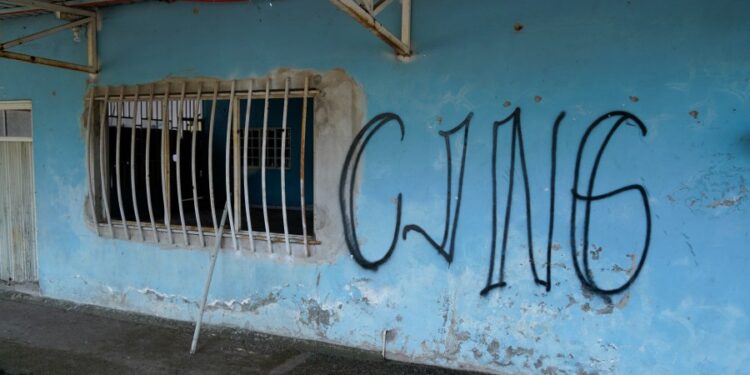
EL PASO, Texas (Border Report) – The White House on Feb. 20 designated eight Latin American transnational criminal gangs as foreign terrorist organizations.
They include Mexican drug cartels flooding American communities with fentanyl and other drugs, and Central and South American street gangs like MS-13 and Tren de Aragua linked to violent acts in the United States.
The designation empowers the Treasury Department and U.S. law enforcement to aggressively target financial resources these groups utilize to produce their product, wage war on each other and authorities, and terrorize civilians in their home countries.
But it does not mean the American public will soon see the Army’s 82nd Airborne Division parachuting into mountains in Mexico or the Navy SEALs knocking down doors on cartel leaders’ mansions in Guadalajara, an international security expert says.
“You may have some advisers physically on the ground working with Mexican law enforcement, the military, army, navy, etc. But if they’re good advisers, you won’t even see them or hear about them,” said Michael Ballard, director of Intelligence for Global Guardian LLC. “You are not going to have (an American) up front, putting the handcuffs on ‘El Mencho.’ It is going to be a Mexican security or law enforcement official doing that.”
Nemesio Oseguera Cervantes, aka “El Mencho,” is the founder of the Jalisco New Generation Cartel, or CJNG.
Nonetheless, the terror group designation and Mexico’s newfound willingness to give U.S. law enforcement more leeway south of the border will weigh heavily on the leaders of criminal organizations. It might even back them into a corner – which could pose risks for American officials and visitors to Mexico.
“You can view it as cooperation by coercion,” Ballard said of news reports, recently confirmed by the president of Mexico, of American drones flying south of the border and U.S. spy planes operating off the coast of Sinaloa. “Twenty-five percent tariffs on exports were initially levied on Mexico and then suspended for 30 days pending more border security by the Mexican government; they agreed to deploy 10,000 National Guard troops to the border to help shore up security there.”
President Claudia Sheinbaum last week emphasized the drones and U.S. planes were authorized by Mexico as part of binational cooperation. She also sent to her Congress a proposed constitutional amendment to criminalize unauthorized foreign incursions or activities in Mexico.
“The threat of tariffs seems to be a very effective kind of bargaining by the Trump administration to get what they want,” Ballard said. “But I would guess at least for the first year, the drone flyovers, reconnaissance planes, the U.S. assistance with wiretapping, with electronic device intercepts … that’s going to be the extent of it.”
U.S. companies, visitors might get caught in the crossfire
Trump’s executive order on cartels stems from statutes dating back to the 9/11 terror attacks, which the George W. Bush administration used to go after Al-Qaida. He targeted bank accounts and other property the group and its wide network of supporters used to launder money, buy weapons, vehicles and food for its operatives.
“It’s going to give FBI, DEA, CIA more levers they can pull going after shell companies and anyone helping them launder money – knowingly or unknowingly,” Ballard said. “A lot of businesses that operate in Mexico are going to have to be very careful and scrutinize their operations to make sure they are not inadvertently breaking these new laws.”
Fines are already in the books to prosecute Americans inadvertently engaging in international money laundering. The terror designation now could mean jail time, he said.
Also, the subsidiaries of American companies in Mexico occasionally have been targeted for extortion by local criminals threatening to disrupt their operations or harm their employees. From now on, giving in to those threats could be interpreted as funding a terrorist organization, Ballard said.
Further, if the U.S. and Mexico begin to inflict serious damage on cartel finances or jailing many of its leaders, there’s always the risk that these groups will lash back.
Worst-case scenario
“What are the cartels going to do? That is the big question everyone has,” Ballard said. “My worst-case scenario is these cartels have a lot of money, lot of firepower, a lot of armored vehicles. [….] You could see these groups morph into an insurgency a la FARC and ELN in Colombia. Those groups started as insurgencies, as guerilla groups and used drugs to fund their militancy. You could see the same but in reverse with drug trafficking groups turn into militant groups.”
More likely, if backed into a corner and laying low no longer serving a practical purpose, Mexican cartels could experience further fracturing and discard restraints on kidnappings and extortion.
“You could see some of these cartels targeting American businesspeople or travelers in a way they were previously afraid to do,” Ballard said. “If your assets, your operations get disrupted, you may feel like, ‘What do I have to lose? The attention of U.S. is already here. We are already public enemy No. 1.’”
The private security expert says he has not yet seen indications that will come to pass. But Global Guardian is urging corporations and travelers to monitor the situation in Mexico.
“Be cautious, keep track of what is going on, especially if you’re traveling to cartel heavy areas. Mexico City has its share of crime but no cartels controlling street violence or trafficking. But Guadalajara sits in the CJNG area of influence. If you go there, consider extra security,” Ballard said.
Tourist destinations should still be relatively safe during spring break.
“Mexico still depends to a significant degree on foreign dollars,” he said. “If we start seeing rhetoric that they’re going to start targeting Americans, our messaging will change accordingly.”







